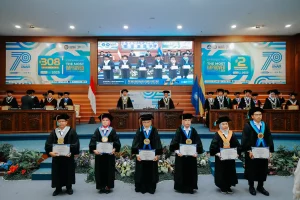This paper explores issues surrounding Indonesia’s merger control, including the use of ex-ante and ex-post regulatory approaches, conflicting norms, overlapping legal rules, and regulatory gaps. These issues complicate enforcement by the Indonesian Business Competition Supervisory Commission (KPPU). The analysis examines the legal characteristics of merger control based on KPPU decisions over the past two decades, evaluating both approaches to assess their alignment with Indonesia business competition law objectives.
Mergers, consolidations, and acquisitions aim to boost company capital, production efficiency, and profit. However, regulatory ambiguities and conflicting norms in Indonesia contribute to legal uncertainty in enforcing merger control. Two main issues are identified: the regulatory characteristics within KPPU decisions from 2000 to 2020 and the potential use of ex-ante versus ex-post control.
Indonesia’s merger control is governed by Law No. 5 of 1999, which prohibits mergers that may lead to monopolistic or unfair business practices. A key requirement is notifying KPPU within 30 days of a merger if it meets certain financial thresholds. However, enforcement has been inconsistent, with KPPU focusing on post-notification rather than the full regulatory scope of merger control.
Both ex-ante and ex-post approaches to merger control have strengths and weaknesses. While ex-post control is reactive and may allow anti-competitive harm to occur, ex-ante control could prevent such effects by proactively scrutinizing mergers. Effective regulation should support competition, economic efficiency, and public welfare while deterring illegal mergers.
KPPU has faced significant challenges in enforcing merger control, partly due to regulatory gaps. Initially, KPPU relied on a judicial ex-post approach, shifting to an administrative ex-post model in recent years. While both ex-ante and ex-post controls have their drawbacks, the ideal merger control in Indonesia would prioritize pre-emptive, ex-ante measures to safeguard competitive markets.
Penulis: Ria Setyawati1, Budi Kagramanto2, Iman Prihandono3, and Stefan Koos4









